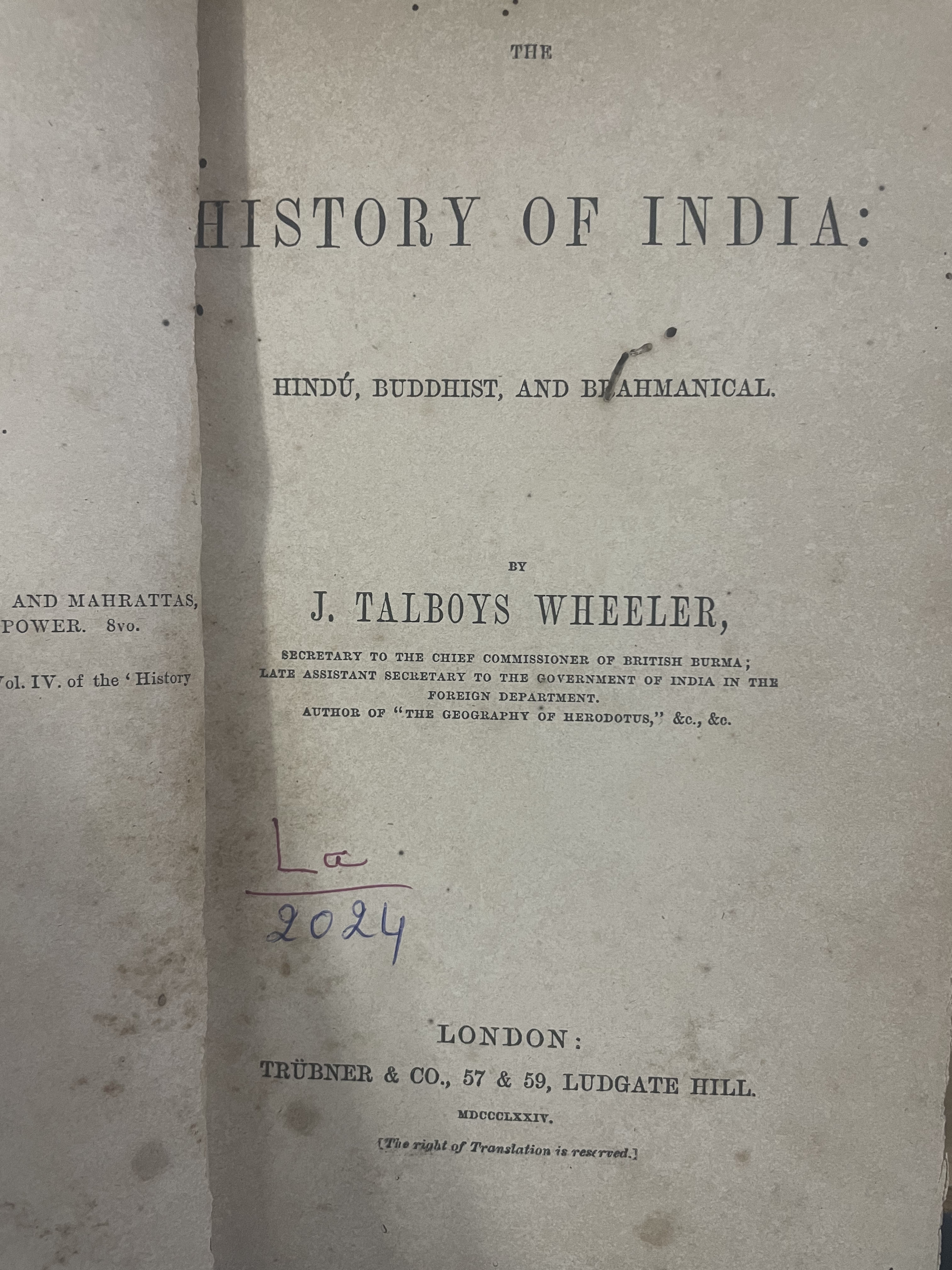The History of India Vol IV

About
Summary
Exquisite
TOC
Details
Related
URL
Images
Overview
The History of India, Volume IV, by J. Talboys Wheeler, focuses on the period of Muhammadan rule in India, spanning from the Arab conquests in the eighth century to the eve of British conquest in the eighteenth century. This volume completes Wheeler's comprehensive historical survey of India, covering a thousand-year period corresponding roughly to the time between the later wars of the Heptarchy and the accession of George the Third in English history. Within this volume, Part II specifically addresses the reign of Aurangzeb, under whom the Moghul Empire reached its zenith, and the reigns of his successors, during which the empire declined and fell.Volume IV, Part II, delves into the complexities of the Mughal Empire, particularly during and after Aurangzeb's reign. It examines the political, social, and economic factors that led to the empire's expansion and subsequent decline. Wheeler's account covers an entire century, beginning with Aurangzeb's accession in 1658 (the year of Oliver Cromwell's death) and ending just before the rise of British dominion in India in the early years of George III. This period is of particular interest to English readers because it represents the old commercial era when India was still governed by its native princes, and the East India Company was primarily focused on trade rather than territorial expansion.
Key Themes
The Reign of Aurangzeb: The volume dedicates significant attention to Aurangzeb, a controversial Mughal emperor known for his religious conservatism and expansionist policies. Wheeler likely explores Aurangzeb's efforts to enforce Islamic law, his conflicts with Hindu rulers, and the impact of his policies on the Mughal Empire's stability.
Decline of the Mughal Empire: Wheeler examines the factors that contributed to the decline of the Mughal Empire after Aurangzeb's death. These factors likely include weak leadership, internal conflicts, economic problems, and the rise of regional powers such as the Marathas and Rajputs.
The State of Civilization in the Mughal Empire: Wheeler likely draws on the accounts of European travelers who visited India during the 17th and 18th centuries to provide insights into the state of civilization in the Mughal Empire. He mentions competent and trustworthy eyewitnesses, Terry, Delia Valle, Tavernier, Thevenot, Fryer, Hamilton, and Karstens Niebuhr.
The Rise of British Power: Wheeler frames the narrative to show how the internal weakness of the Mughal Empire created an opportunity for the rise of British power.
Cultural Significance
Wheeler's History of India holds cultural significance as a product of its time. It reflects the British colonial perspective on Indian history and offers insights into the ways in which the British understood and interpreted India's past. The book contributes to the construction of British imperial identity and reinforces the narrative of British superiority and the right to rule India.
Effects on Society
Shaping British Perceptions: The book contributed to shaping British perceptions of India, influencing attitudes towards its culture, society, and political systems. It likely reinforced existing stereotypes and prejudices, while also providing some level of understanding and appreciation for India's rich history and cultural heritage.
Justifying Colonial Rule: Wheeler's narrative likely served to justify British colonial rule by portraying it as a benevolent force that brought order and progress to a chaotic and backward society. This perspective may have influenced British policy-making and contributed to the perpetuation of colonial rule.
Inspiring Nationalist Responses: Wheeler's interpretations of Indian history may have inspired nationalist responses from Indian intellectuals and activists who sought to challenge the colonial narrative and reclaim their own history.
Historical Record: The book serves as a historical record of British understandings of India, providing insights into the intellectual and cultural context of the colonial era.
Title
The History of India Vol IV
Author
J Talboys Wheeler
Name of Publisher
Trubner & Co Ludgate Hill London
Publish Date
1874
Subject
J. Talboys Wheeler is a comprehensive historical account focusing on the later periods of Indian history, covering the rise and fall of major empires and regional powers. Published in the 19th century
Vintage
1801-1900
Number of Pages
500
Category
History
Sub Category
India
Rarity
RARE
